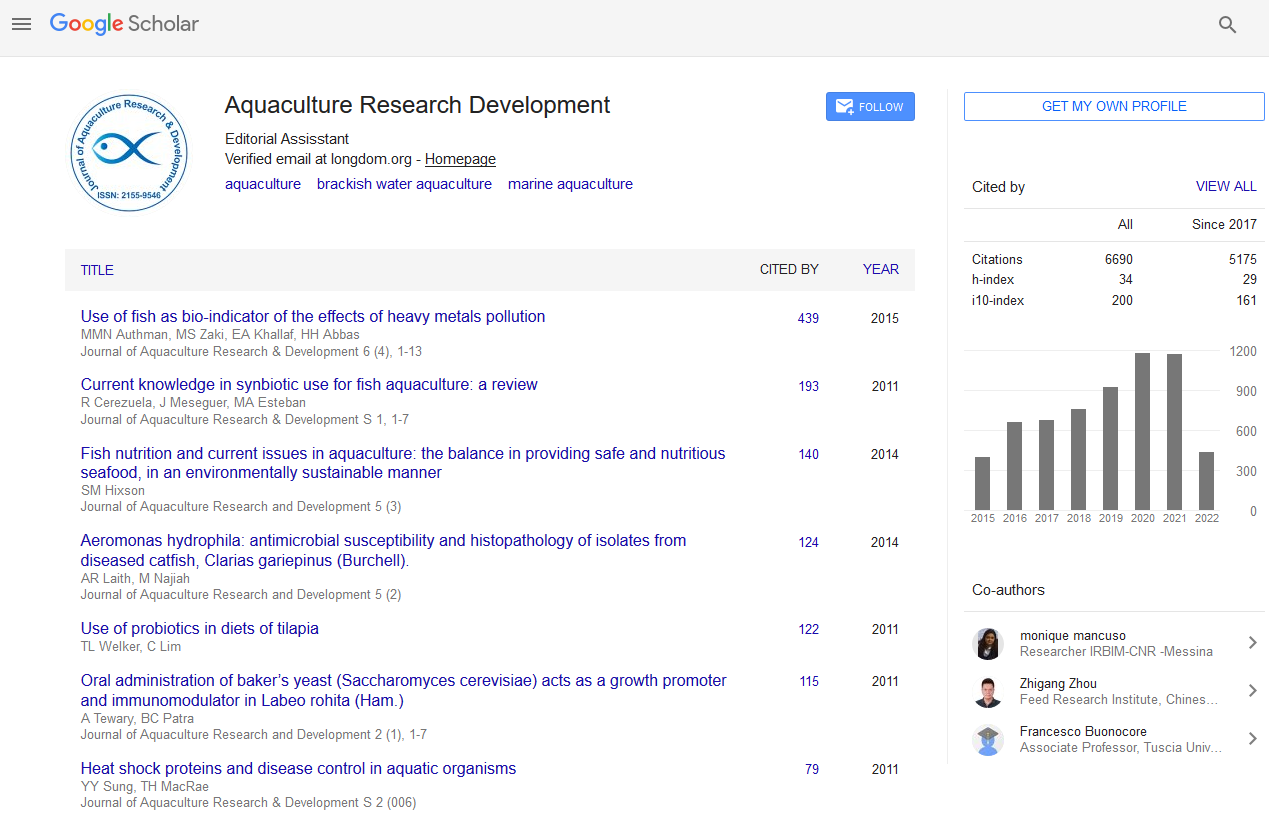PMC/PubMed Indexed Articles
Indexed In
- Online Access to Research in the Environment (OARE)
- Open J Gate
- Genamics JournalSeek
- JournalTOCs
- Scimago
- Ulrich's Periodicals Directory
- Access to Global Online Research in Agriculture (AGORA)
- Electronic Journals Library
- Centre for Agriculture and Biosciences International (CABI)
- RefSeek
- Directory of Research Journal Indexing (DRJI)
- Hamdard University
- EBSCO A-Z
- OCLC- WorldCat
- Scholarsteer
- SWB online catalog
- Virtual Library of Biology (vifabio)
- Publons
- MIAR
- University Grants Commission
- Euro Pub
- Google Scholar
Useful Links
Share This Page
Journal Flyer

Open Access Journals
- Agri and Aquaculture
- Biochemistry
- Bioinformatics & Systems Biology
- Business & Management
- Chemistry
- Clinical Sciences
- Engineering
- Food & Nutrition
- General Science
- Genetics & Molecular Biology
- Immunology & Microbiology
- Medical Sciences
- Neuroscience & Psychology
- Nursing & Health Care
- Pharmaceutical Sciences
Vibrio species in water and sediment from Litopenaeus vannamei shrimp culture in Maracaibo, Venezuela
3rd International Conference on Aquaculture & Fisheries
September 29-October 01, 2016 London, UK
Marynes Montiel, Maria Gabriela Suarez, Jose Ibarra, Astrid Salcedo and Zoraida Medina
Universidad del Zulia, Venezuela
Instituto Tecnológico de Sonora, México
Posters & Accepted Abstracts: J Aquac Res Development
Abstract:
Shrimp aquaculture is an important practice around Lake Maracaibo, Venezuela being Litopenaeus vannamei, one of the most cultivated species at semi-intensive levels in farms. Vibrio species are responsible for bacterial diseases in shrimp farming. In this study, Vibrio species�?? presence in water and sediment in L. vannamei pond culture was determined at a shrimp farm located on the shore of Lake Maracaibo. The relation between physicochemical (temperature, dissolve oxygen, pH and salinity) and bacterial growth was evaluated. Samples were taken every 15 days at three points (input, center and output) in nine ponds. Enumeration was done using TCBS agar with identification using API® 20 NE. Results showed higher Vibrio concentration in sediment than water samples. V. parahaemolyticus was the most prevalent species followed by V. fluvialis, V. mimicus and V. alginolyticus. Presence of Vibrio species, particularly V. parahaemolyticus, showed the importance of surveillance on shrimp ponds in order to control any problem on them. There was no significant correlation between physicochemical parameters and Vibrio presence in the samples.
Biography :
Email: mstnahidakter@gmail.com


